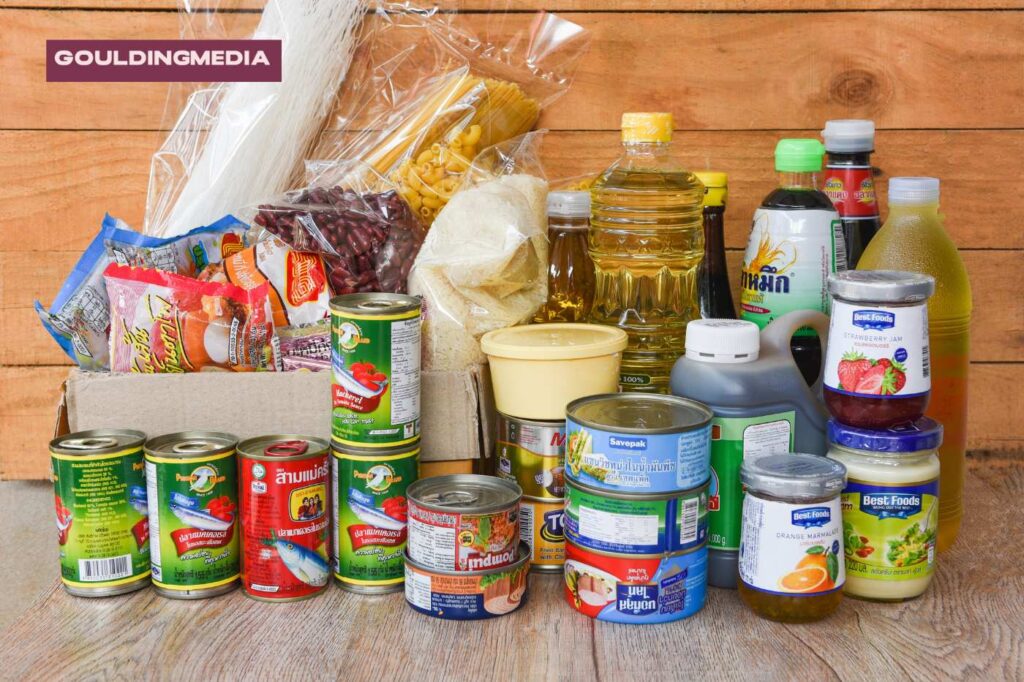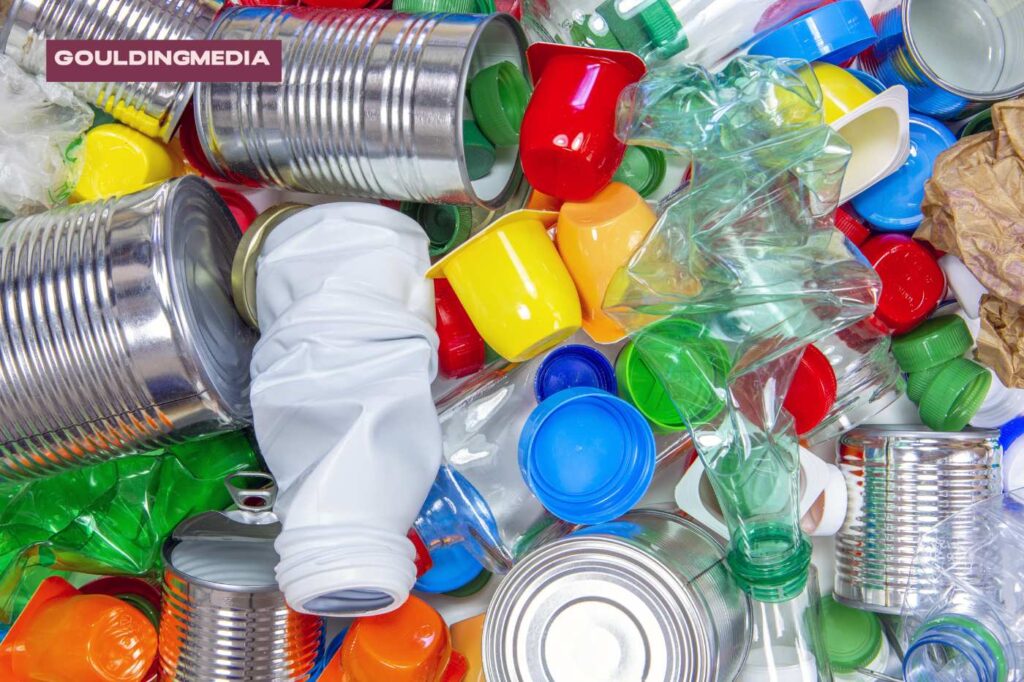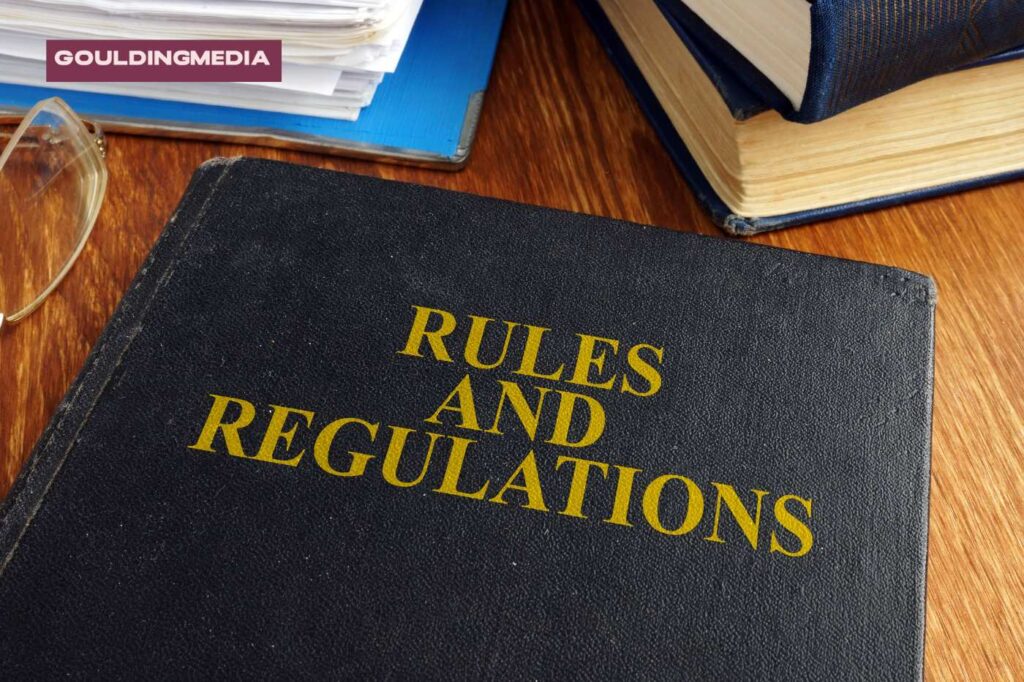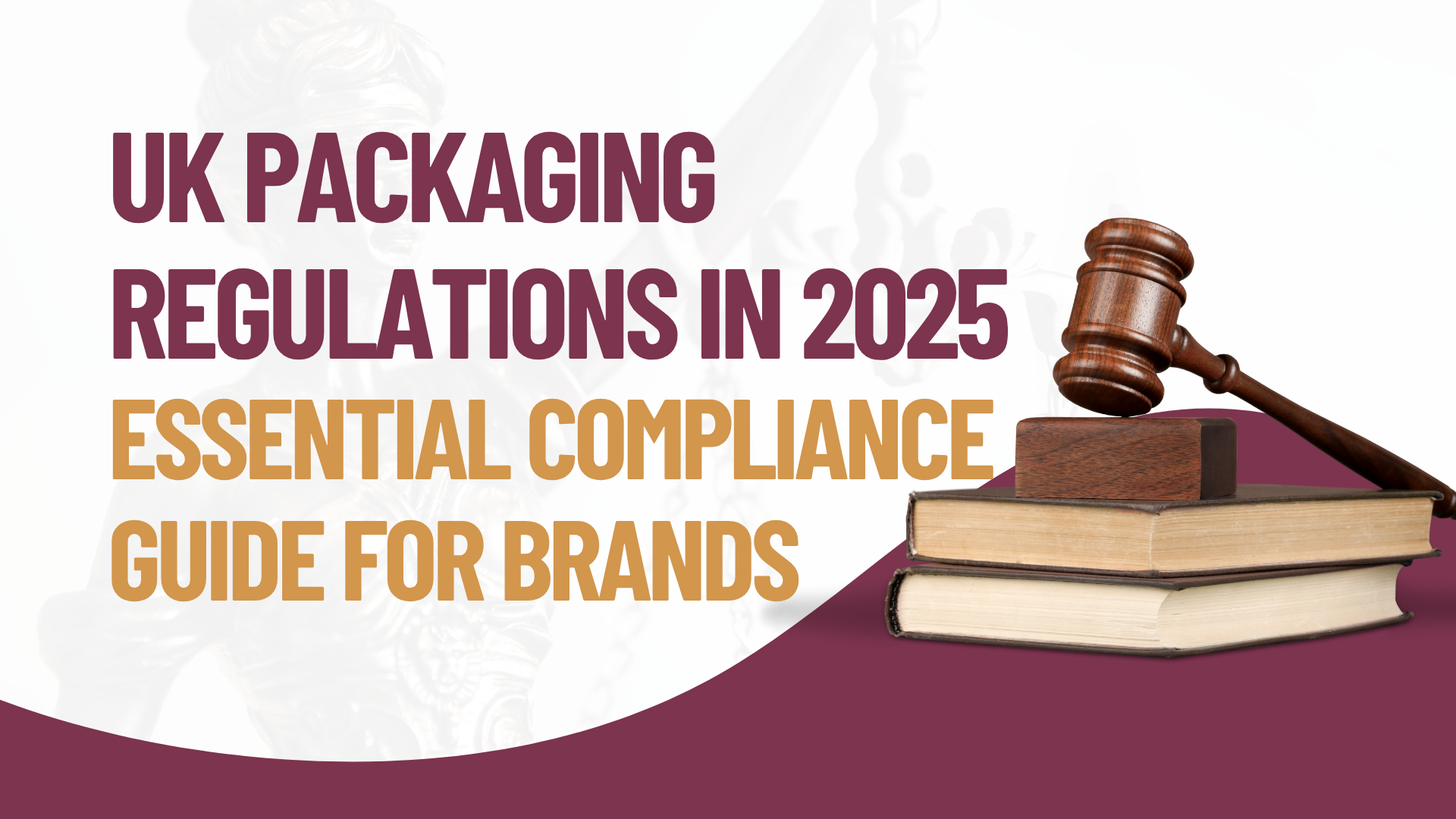Packaging compliance is one of the most important parts of launching your product. With so many changing rules and regulations, it’s easy to miss something critical.
For UK businesses in 2025—especially startups and small brands—staying ahead of packaging laws is essential to avoid fines, product recalls, or being blocked from primary sales channels.
This guide covers everything you need to know about current UK packaging regulations, including food and non-food labelling requirements, Extended Producer Responsibility (EPR), and post-Brexit compliance updates.
Understanding the rules helps protect your brand, avoids hefty fines, and keeps your products on shelves in the UK and beyond.
Why Packaging Compliance Matters for Small Businesses
If you’re running a small business, packaging might seem like just another thing to tick off your list. However, in 2025, the rules regarding packaging in the UK became stricter, and ignoring them can result in more than just a warning.
- Small businesses are still legally required to meet UK packaging regulations.
- Non-compliance can result in significant fines, product recalls, or removal from stores and online platforms.
- Compliant packaging builds trust with eco-conscious and detail-aware consumers.
- Addressing packaging issues after launch can be costly and delay your business.
- Selling through platforms like Etsy or Amazon may mean you’re already exporting and must meet international packaging rules.
What Startups Must Know About Food & Non-Food Packaging Labelling

Food Packaging
If you sell food—homemade, pre-packed, or online—you must follow labelling rules set by the Food Standards Agency (FSA).
Key Labelling Essentials You Can’t Afford to Skip:
- Allergen Information: Clearly highlight any of the 14 major allergens (such as milk, nuts, or gluten) in the ingredient list using bold or a different font.
- Full Ingredient List: List everything that goes into your product in weight order, starting with the main ingredient.
- Use-By or Best-Before Dates: These are legally required and help ensure food safety.
- Nutrition Info: If you’re pre-packing food for retail, a full nutrition guide per 100g/ml is usually needed.
- Business Name and Address: Must be a UK, Isle of Man, or Channel Islands address by law.
“Not for EU” & Country of Origin Labelling
- From 2024, some specified foods and dairy moving into Northern Ireland under NIRMS will have a requirement to display “Not for EU” if the product is not intended for the EU market.
- Clearly state the origin of your product, especially if it could mislead customers.
Food-Safe Packaging Materials
- Only use packaging materials that are food-contact safe. Avoid inks or plastics that could contaminate food.
- If using recycled materials, make sure they’re approved for food use.
Micro-Business Exemptions (and Common Traps)
- If you’re a micro-business (with a turnover under £2 million and fewer than 10 staff), you may be exempt from certain rules, such as full nutrition labelling; however, allergen information and safety rules still apply.
- Skipping allergen labelling because you’re “small” is a big mistake. This is still required, no matter your size.
Non-Food Packaging
If you’re selling non-food products in the UK or Europe, understanding the requirements for UKCA and CE markings is essential. These conformity marks ensure your products meet safety, health, and environmental standards.
What Do UKCA and CE Markings Mean?
- UKCA (UK Conformity Assessed): This is the post-Brexit version of the CE mark. It demonstrates that a product complies with UK safety, health, and environmental standards. It’s required for many regulated goods sold in England, Scotland, and Wales.
- CE (Conformité Européenne): This mark means a product complies with EU regulations and can be sold in the European Economic Area (EEA). It’s still required if you’re selling to the EU or Northern Ireland.
UKCA vs CE Marking: Which One Do You Need?
If you’re selling non-food products like candles, electronics, or cosmetics, you may need to show your products meet legal safety standards using conformity marks.
- UKCA (UK Conformity Assessed): Required for most regulated goods sold in England, Wales, and Scotland. It replaced CE marking after Brexit.
- CE Marking: Still used if you’re selling in the EU or Northern Ireland. Northern Ireland also allows a hybrid mark called UKNI alongside CE.
If you’re only selling in Great Britain, use UKCA. If you’re selling in the EU or Northern Ireland, you need CE certification, and possibly UKNI certification in Northern Ireland.
When Small Businesses Need to Apply Product Conformity Marks
Not every product needs a UKCA or CE mark—only those under certain regulated product categories (like electronics, toys, or cosmetics).
You must apply a conformity mark if:
- Your product is covered by UK regulations (like The Electrical Equipment Safety Regulations or The Toys (Safety) Regulations).
- You are the manufacturer, or you’re importing and rebranding goods under your name.
- You are selling to the general public, and the product poses a potential safety risk.
You also need to:
- Keep technical documentation showing how your product meets the regulations.
- Issue a Declaration of Conformity with your details and the standards your product complies with.
UK Waste Packaging Laws & EPR 2025: What’s New

Extended Producer Responsibility (EPR) is a legal framework that shifts the cost of recycling packaging in the UK from the government to the businesses that create it.
If you package, sell, or import goods, the extended producer responsibility UK rules mean you may now be accountable for reporting how much packaging you use—and paying for its environmental impact. These updates fall under the broader UK Packaging Waste Directive, which aims to improve sustainability and transparency.
Small Business Thresholds
Not every small business is affected equally. Here’s a simple breakdown:
- If your turnover is under £1 million, you’re currently exempt. You do not need to register or submit packaging data under the current EPR rules.
- Turnover £1M+ and you handle over 25 tonnes of packaging per year? You’re considered a “small producer” under EPR.
- Larger producers (over £2M turnover and 50+ tonnes) have more extensive obligations.
So, if you’re a startup approaching £1M turnover, it’s time to track your packaging data early. This helps prepare for your role in UK packaging waste management and avoids last-minute surprises.
Annual Data Reporting and Cost-Sharing
Even as a small producer, you’ll need to submit packaging data each year, like how much plastic, cardboard, glass, or metal you used.
- The UK government uses this data to calculate waste management costs, which businesses share through EPR fees.
- Small producers (above thresholds) must submit packaging data twice a year.
How Startups Can Stay Compliant Without a Full-Time Compliance Team
No team? No problem. Here’s how you can manage:
- Use basic tracking tools (like a spreadsheet) to log materials and packaging weight.
- Ask suppliers for packaging specs (weights, materials).
- Join a compliance scheme (such as Valpak or Ecosurety) to simplify reporting—they handle submissions and deadlines for you.
- Plan ahead for EPR fees by budgeting them into your product cost.
Guide to European Rules and How They Differ from the UK Packaging Regulations

What Is the EU’s New Packaging Regulation (PPWR)?
The Packaging and Packaging Waste Regulation (PPWR) is a legally binding EU regulation introduced to reduce packaging waste, improve recyclability, and make packaging more sustainable across the EU. Key objectives include:
- Making all packaging recyclable by 2030
- Introducing mandatory recycled content in packaging (especially plastic)
- Promoting reusable packaging systems
- Encouraging design for circularity and eco-friendly packaging
Unlike older EU directives, the PPWR doesn’t rely on national implementation—it applies directly to all EU member states and to any UK business exporting to the EU.
How Do These Rules Differ from UK Packaging Regulations and Laws?
| Area | EU PPWR (2025) | UK Law (2025) |
| Recyclability | Mandatory by 2030 | Encouraged, but no hard deadline |
| Recycled content | Mandatory for plastics (specific % required) | Voluntary for most packaging types |
| Design rules | Scored system for recyclability and reuse | No recyclability score system |
| Reuse targets | Required in some sectors (e.g. e-commerce, catering) | No mandatory reuse targets yet |
| EPR compliance | Centralised at the EU level with national enforcement | The UK EPR system is managed by DEFRA with phased deadlines |
| Public procurement | Mandatory eco-packaging standards from 2030 | No mandatory standards for public contracts (yet) |
What UK Exporters Must Do to Stay Compliant
If you’re shipping products to the EU, you need to:
- Check your packaging materials for compliance with recyclability and recycled content targets
- Avoid banned or restricted formats (like non-recyclable multilayer plastics)
- Label products properly with EU-recognised recycling and reuse symbols
- Work with suppliers who can certify compliance with EU eco-design rules
- Track materials and formats in case you’re audited by EU authorities
UK Food Products Supplied to the European Market
- Additional labelling and traceability are needed for EU access
- Adjustments for language, claims, and origin
- Impact of Brexit: no longer mutual recognition
USA Food Packaging Legislation for UK Suppliers

If you’re a UK small business owner and planning to export food products to the U.S., here’s what you must know about American food packaging laws:
1. FDA Registration Is Still Required
Even if your revenue is below £100k, the U.S. Food and Drug Administration (FDA) still requires foreign food facilities to register. You’ll also need a U.S.-based agent who can liaise with the FDA on your behalf. This applies whether you’re producing snacks, sauces, or speciality items.
2. Labelling Must Follow FDA Format
Your packaging must comply with FDA food labelling rules—no exemptions for small size. Key label requirements include:
- Statement of Identity (product name)
- Net Quantity of Contents (in both metric and U.S. customary units)
- Ingredient list (in descending order by weight)
- Nutrition Facts Panel (unless eligible for exemption, see below)
- Manufacturer or Distributor name and address
- Allergen declarations following the U.S. FALCPA rules (e.g., soy, milk, peanuts)
3. Can You Skip the Nutrition Label?
Yes, low-volume exemptions exist for nutrition labelling. You may qualify if:
- You sell fewer than 100,000 units annually in the U.S.
- Your business has total U.S. sales under $50,000 per year
But this exemption must be formally requested and documented—it’s not automatic.
4. Allergen Labelling: U.S. vs UK
U.S. allergen laws require labelling of the top 9 allergens, which include sesame (added in 2023). Use specific language like: “Contains: milk, wheat, soy.” This is stricter than UK formats, so adjustments to your packaging are usually necessary.
5. Use a U.S. Nutrition Consultant or Compliance Partner
For small exporters, it’s cost-effective to work with a U.S.-based consultant who can review your labels, verify FDA compliance, and help with registration. This avoids costly rejections or detentions at the border.
Stay Compliant with UK Packaging Regulations to Protect Your Business
UK Packaging regulations are regularly changing as new initiatives and guidance are released, and every brand must consider the regulations to ensure they make smarter choices for stock longevity and cost efficiency.
At Goulding Media, we understand these challenges and can help you navigate them smoothly, so you can focus on growing your business without compliance worries.
You won’t have to face the complexities of UK packaging regulations alone. We offer expert support throughout the packaging design and compliance process. Contact us as early as possible to get tailored advice and ensure your packaging meets all legal requirements. Reach out today to make compliance straightforward and stress-free.
Frequently Asked Questions
Do I Need to Register for EPR if I Only Sell 10,000 Units a Year?
Not necessarily. EPR registration is based on turnover and packaging tonnage, not units sold. If your turnover is under £1 million and you handle less than 25 tonnes of packaging a year, you don’t need to register.
Can I Use the Same Packaging for Both the UK and EU?
Not always. The EU has stricter packaging rules under the new PPWR, so packaging that meets UK standards may not comply with EU eco-design and labelling requirements.
What Counts as Recyclable Under UK Law?
Recyclable packaging must be widely collected, easily sorted, and reprocessed into new materials in the UK waste system. It must not include components that interfere with recycling, like black plastic or mixed materials.
If I’m Selling in Different Countries, Do I Need Other Languages on My Packaging?
Yes. If you’re selling in the EU, the PPWR mandates harmonised labelling including details on material type, sorting instructions, recyclability status, and potentially multiple official languages depending on target countries. This means multilingual packaging is often required for multi‑market products.
If Someone Else Distributes My Product, Are They Responsible for Following the Correct Legislation?
If they sell it under your brand in the UK, you’re responsible. If they sell it under their own brand, they’re responsible. If the product is imported and your brand has no UK branch, the importer or distributor is responsible. In the EU, the business placing the product under an EU brand is responsible.
What If My Products Are Homemade in Small Batches and Sold Locally? Do I Still Need to Follow the Food Labelling Legislation?
Yes. If you’re producing food products, on any scale — even small-batch homemade goods — you must comply with UK food labelling regulations.




